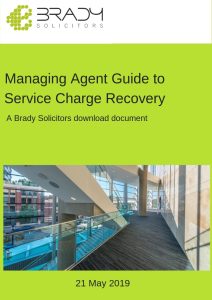An overwhelming majority of service charge disputes in the FTT relate to the reasonableness of service charges. By focusing on providing value for money and maintaining good records, landlords and RMCs can take steps to protect themselves in the event of any future claim.
Section 27A of the Landlord and Tenant Act 1985 allows leaseholders to apply to the Tribunal for “a determination whether a service charge is payable and, if it is, as to the amount which is payable.”
So, if a leaseholder is unhappy about charges they can make an application to the First-tier Tribunal to have them determined. Landlords/RMCs should always be conscious of this when choosing suppliers and carrying out work.
Brady Solicitors’ Sam Andrews defines ‘reasonable’ and reminds managing agents and RMCs of what they need to do to ensure their charges fit this definition.
What constitutes ‘reasonable’?
Ultimately it is the First-tier Tribunal (FTT) that determines what charges are reasonable. Its aim is to ensure that leaseholders are getting value for money.
The FTT will consider factors such as:
- The size of the property: smaller properties will require less maintenance, and less cost. For example, are the gardens a small patch of grass or a large communal garden?
- Maintenance history: properties that have historically been kept to a high standard may allow landlords to prove that a higher cost of maintenance is justified.
- Frequency of works: some charges may be considered excessive if they are carried out too often.
- Collective benefit to leaseholders: the work must benefit the leaseholders collectively. Works carried out in an individual property are unlikely to be considered reasonable, even if they are permitted under the terms of the lease.
- Independence of contractors: if the FTT considers that the landlord or their agent is using a subsidiary company or close acquaintance, they may reduce the charge to ensure the leaseholders do not suffer.
- The standard of work: if work is not carried out to a high standard then the charges may not be considered reasonable and could be reduced.
Remember, managing agent’s fees and insurance premiums can also be reduced.
Agents must be able to show that the property requires sufficient maintenance to justify their charges. If a property doesn’t require high levels of upkeep then management fees may be reduced.
How can you prove charges are reasonable?
If a leaseholder applies to the FTT, the burden is then on the landlord/RMC to prove that the service charges are reasonable.
These seven steps can help you to demonstrate a fair approach to service charge calculations:
- Make sure you “go to market” to get like-for-like quotes from potential suppliers.
- Ensure you can explain how you select your service providers. For example, your selection criteria might include your working relationship with them; knowledge of their good workmanship; their public liability insurance; price, and so forth.
- Carry out spot checks on your service providers and works contractors.
- Make it easy for leaseholders to give you feedback.
- Communicate and stick to your service standards. If you state that you will respond to leaseholder correspondence within a set period of time, then make sure you adhere to this.
- Clearly specify any “back office” services paid for through the service charge.
- Keep a full record and paper trail of your procurement decisions.
At the end of the day it is the leaseholders’ money that you are spending, and it is good practice to ensure that anyone in your organisation with a procurement brief is spending this money wisely.
Ask leaseholders for their opinion before instructing expensive contractors – even if the works are not caught by the Section 20 major works consultation requirements – and keep a record of these discussions. If the leaseholders agree that particular maintenance should be carried out then this will likely persuade a First-tier Tribunal panel.


